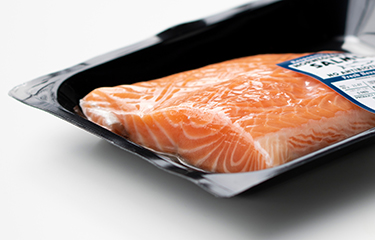Norwegian salmon prices continued to climb in the past week, increasing 0.44 percent on average.
According to the weekly Nasdaq Salmon Index price sales update, the total weighted average index of prices for fresh Atlantic superior salmon, head-on gutted, increased to NOK 109.10 (USD 9.78, EUR 9.17) per kilogram in the 21st week of 2023.
Nasdaq reported 2794.7 MT, was sold in the past week, or approximately 705,100 salmon, weighing an average of 3.96 kilograms each.
This week’s average price rose NOK 0.48 (USD 0.04, EUR 0.04), or 0.44 percent, over last week's average price of NOK 108.61 (USD 9.71, EUR 9.12).
Prices were flat despite the Norwegian government advancing an agreement to raise taxes on the country's salmon farmers by 25 percent – lower than the 40 percent that had been proposed, but still too high, according to a statement issued by SalMar, one of Norway's largest salmon producers.
On Wednesday, 31 May, the Norwegian Storting, or parliament, voted to advance the tax, which will raise the marginal tax rate on salmon aquaculture to 47 percent retroactive to 1 January, 2023.
"Today's tax decision will have a significant distorting effect. The high tax level and the unfavorable design of the new tax will withdraw a substantial portion of investment capital from the industry. This will come at the expense of investments, innovation, and employment in an industry where coastal communities have ensured that Norway has become a global leader," SalMar said in a statement "The tax will affect the entire value chain, especially the land-based industry and suppliers. The lack of proper assessment and the remaining uncertainties in the decision-making process only amplify the uncertainty. Given these circumstances, SalMar will continue to actively collaborate with industry organizations to describe the actual situation and the challenges the industry is currently facing. Through close and fact-based dialogue with authorities and decision-makers, we look forward to promptly restoring a tax system and tax level that is appropriate for Norwegian aquaculture. The aquaculture industry has clearly and openly been willing to contribute more in terms of taxation. However, it must be at a sustainable level with a model that is tailored to the industry."
Also potentially impacting prices, the Norwegian Food Safety Authority, Mattilsynet, found bacterial kidney disease (BKD) present at four salmon farms operated by Lerøy Seafood. Mattilsynet issued a warning about BKD for the entirety of Norway's region 6, in the central part of the country.
Photo courtesy of Tada Images/Shutterstock







